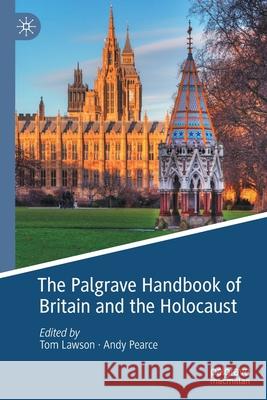The Palgrave Handbook of Britain and the Holocaust » książka
topmenu
The Palgrave Handbook of Britain and the Holocaust
ISBN-13: 9783030559342 / Angielski / Miękka / 2022 / 532 str.
The Palgrave Handbook of Britain and the Holocaust
ISBN-13: 9783030559342 / Angielski / Miękka / 2022 / 532 str.
cena 603,81
(netto: 575,06 VAT: 5%)
Najniższa cena z 30 dni: 578,30
(netto: 575,06 VAT: 5%)
Najniższa cena z 30 dni: 578,30
Termin realizacji zamówienia:
ok. 22 dni roboczych.
ok. 22 dni roboczych.
Darmowa dostawa!
Kategorie:
Kategorie BISAC:
Wydawca:
Palgrave MacMillan
Język:
Angielski
ISBN-13:
9783030559342
Rok wydania:
2022
Ilość stron:
532
Waga:
0.73 kg
Wymiary:
23.39 x 15.6 x 2.72
Oprawa:
Miękka
Wolumenów:
01
Dodatkowe informacje:
Wydanie ilustrowane











